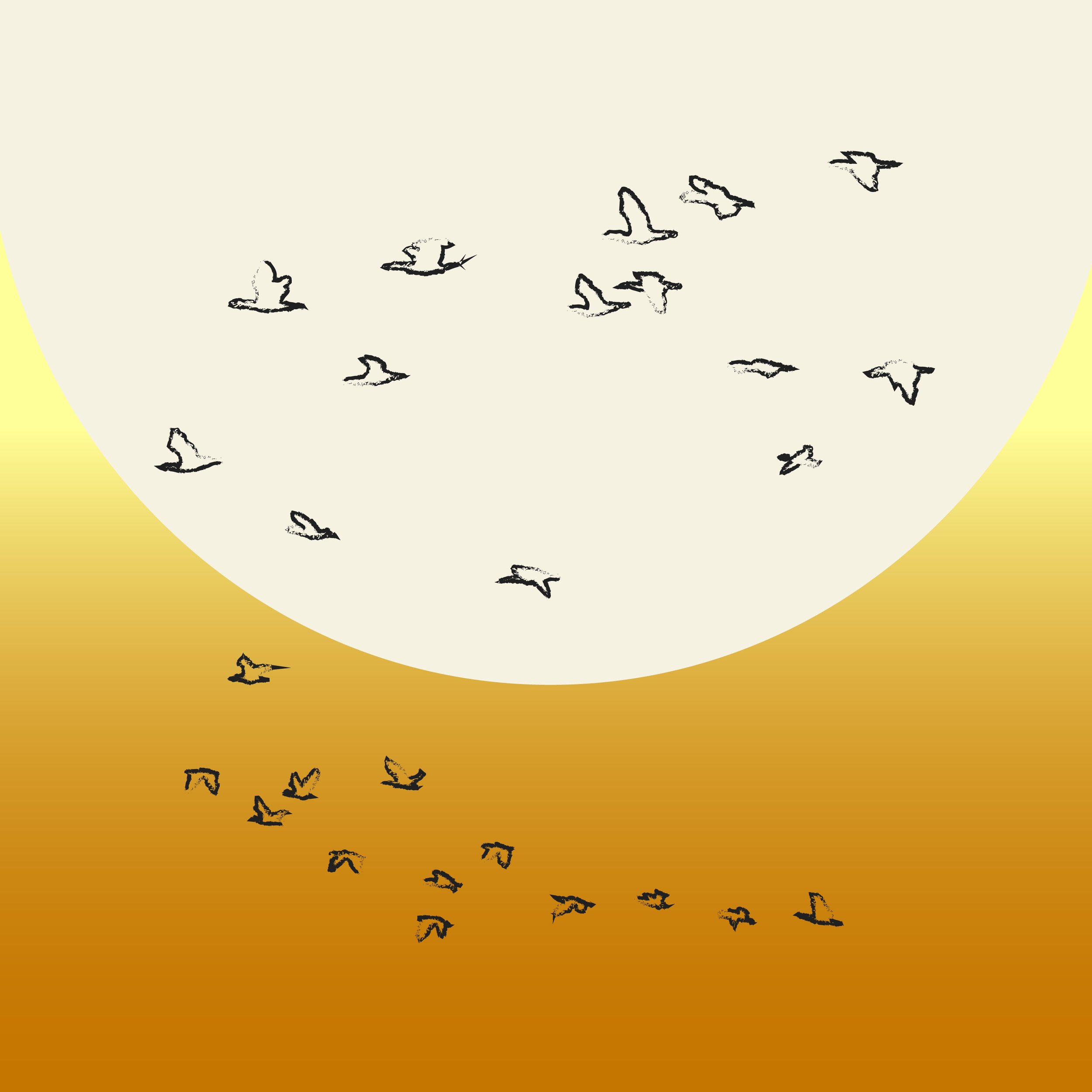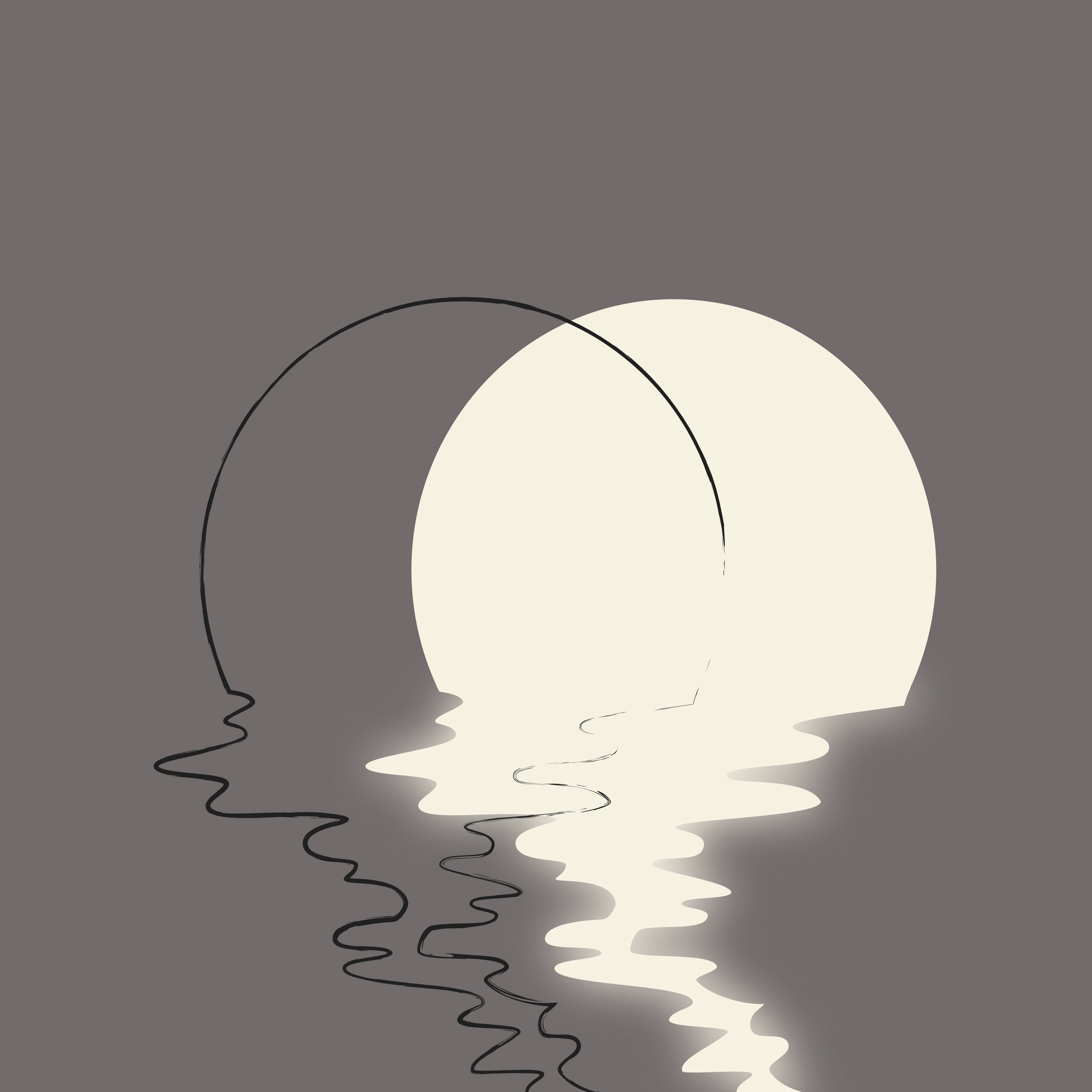Three Poems
“A story of two truths: light / and shadows.”
APRIL 3, 2025
Enter Sun
If you want to look at the sun
you will need to scan the mountains
and the faces:
the world’s hardest things.
As it cuts across weeds and rocks,
eyelashes and teeth,
the ball of fire becomes
a story of two truths: light
and shadows.
You need to observe the grass,
dampened by rain.
On such frail bodies,
the immeasurable sun fractures into thousands
of little suns, composing
its most tender songs.
It glistens inside every drop,
sings in every blade of grass.
No matter how stubbornly
melancholy refuses to leave you,
the sun will trespass through the window
and caress your cheek.
It will light up the entire room.
It doesn’t care
that we’re murdering one another;
every morning it takes us by the hand,
towards beauty and truth.
With the blindest among us,
it is most gentle; it firmly grips his hand.
He has no idea how distant it is.
To him, the sun is right there
on his face,
and on his fingers.
He has never witnessed
its abrupt appearance
from between the clouds, its arms opening
to embrace every creature.
In his mind, it belongs
to him alone.
On the checkpoint,
it flares on the helmets of soldiers
and rises on the windows
of queuing cars.
From wherever you stand,
you can always see it
on the opposite side—
illuminating the hills of your enemies.
Enter Wrist Pain
While people were dying in the thousands during the Black Plague, Petrarch, a thirteenth century poet, prowled monastery cellars looking for ancient manuscripts that had stayed silent for hundreds of years. When he came across a manuscript by Cicero, a Roman poet, he copied it for weeks on end until his wrist ached. I will be thinking of this as I cross the Container checkpoint, as the soldiers construct roads and erect fences, littering our hills with bulldozers. I will be thinking of how Petrarch’s trivial wrist pain has traversed centuries, like a bulldozer, only because he turned it into a sentence on a page. And that’s why this image of a scribe, copying a book in full—to give to dwellers of the centuries to come—as a plague races people to the villages they have fled to, will always remain my idea of the road. And that wrist pain will be the bulldozer I scatter over the hills—the hills above which soot continues to rise.
Enter Poem
The last poem you read
On your phone
Its light cast across your face
Standing up
On the bus from Jerusalem
Leaning against the door
Your bag between your feet
The phone in your hands
The poem you’re thinking about right now
Crossing Manarah Square
Your hands in your pockets
Your scarf obscuring half your face
The poem you read first thing in the morning
Before fully waking up
Before the world assaulted you
The poem you read in bed
During the second intifada
While the tanks besieged the Muqataá
When you knew very little about the world
The poem you read on a hot summer
In a strange city
Where you spoke to no one
The poem you read while reading another book
The poem you read on your mattress after your cellmates had gone to sleep
The poem that knows something you don’t yet know about yourself
The poem you don’t fully remember
But remember walking in Nablus after reading it
How the world seemed then
A mystery
The poem you read during the war
And though it didn’t comfort you
It did, for a few moments, distract you
The poem you found wearily flipping through a book
At your friend’s house
Because you had nothing to say
The poem your grandfather kept reciting even after he lost his mind
The poem you read thousands of times
The poem you wanted to share with everyone you know
The poem you’re thinking of right now
Crossing Manarah Square
Your hands in your pockets
Your scarf obscuring half your face
Suddenly
You’re captivated by the trees
And you don’t know where you’re going
Like the frost
Drifting and alone
With every step
You swallow the fog
والآن، تعالَيْ أيَّتُها الشَّمس
إذا أردتَ أن تَرى الشَّمس
عليكَ أن تتفرَّجَ على الجبالِ والوُجوهِ
هناكَ على أكثَرِ الأشْياءِ قُسْوةً في هَذا العَالمِ
على الحَشَائشِ والصخُور
على الرُّموشِ والأسنَانِ
تصيرُ كُرَةُ اللَّهَبِ نوراً وظلالاً
قِصَّةً مِن حقيقَتيَن.
عليكَ أن تتفرَّجَ على العُشبِ المُبلَّلِ بالمَطَر
هناكَ على الأجسامِ الهشة
تُغنّي الشَّمسُ الهائلة أرقَ أُغنياتِها
وتتمزقُ إلى آلافِ الشُّموسِ الصَّغيرة.
تلمعُ في كُلِّ قطرةٍ
تُغنّي على كُلِّ عُشبةٍ.
مَهما كانتِ الكَآبَةُ تَرفضُ أَنْ تُغَادرَك
سَتَنسلُ الشَّمْسُ منَ النَّافذَةِ وَتُدَاعِبُ خَدَّكَ
وَستُضِيءُ لكَ الغُرفةَ بِأَكْملِهَا.
لا يهمُّها أنَّنا نقتلُ بَعضُنا البعض
كُلَّ صباحٍ تأخذُ بأيدينا نحوَ الحقيقةِ والجَمال.
حنونةٌ مع الأكثرِ عَمىً بينَنا
تقبِضُ بِقُوَّةٍ على يدَيْهِ.
لا يملِكُ أدنى فِكرةٍ كَم هي بعيدةٌ
بالنسبةِ له
هي على وجهِهِ
وعلى أصابعِهِ.
لم يرَ أبداً كيفَ تظهرُ فجأةً بينَ الغيوم
وتأخذُ كُلَّ الكائناتِ في حُضنِها
في عقله، هي له وَحدَه.
على الحاجز: تتوهَّجُ على خُوَذِ الجُنود
وتسطَعُ على زُجاجِ السَّياراتِ الواقِفة.
أينما كُنتَ واقفاً تستطيعُ أن تراها دائِماً
على الجِهَةِ الأُخرى
تُضيءُ تلالَ أعدائِك.
والآن، تعالَ أيُّها الوجَعُ في الرُّسْغ
بينَما كانت الناسُ تهلَكُ بالآلافِ في الطّاعونِ الأسوَدِ، كانَ هناكَ في القرنِ الثالثَ عشَرَ شاعِرٌ، بترارك، يدورُ مِن قَبْوِ دَيْرٍ إلى قَبْوِ دَيْرٍ، يبحثُ عن المخطوطاتِ القديمةِ التي ظلَّت صامتةً لمِئاتِ السِّنين. حين وجَدَ مخطوطةً لسسيرو، شاعرٍ روماني، ظَلَّ ينسخُها لأسابيعَ حتّى أوجعَهُ رُسْغُه. وسيكونُ ذلك ما أفكِّرُ به وأنا أعبُرُ حاجِزَ الكونتينر بينما يشُقُّ المستعمِرونَ الطُّرُقَ، ويبنونَ الأسوارَ، وينشُرونَ الجرّافاتِ في تِلالِنا. كيفَ ظلَّ ذلكَ الوجَعُ الصغيرُ في الرُّسغِ يعبُرُ مثلَ جرّافةٍ من قَرْنٍ إلى قَرنٍ كما الكتابِ الذي أنقذَهُ فقَط لأنَّهُ صارَ جُملةً. ولهذا، ستظلُّ هذهِ الصّورةُ لِمَن ينسَخُ كتاباً كامِلاً -حتّى يُهدِيَهُ لِمَن سيَمشونَ على هذا الكَوكَبِ في القُرونِ القادمة- بينما كانَ الطاعونُ يسبِقُ الناسَ إلى القُرى التي يلجؤونَ إليها هي فِكرَتي عن الطّريق، وسيكونُ ذلكَ الوجَعُ في الرُّسغِ جرّافاتي التي أنشُرُها في التّلال، التلالِ التي يتصاعَدُ مِنها الغُبار.
والآن، تعالَيْ أيَّتُها القَصيدة
القصيدةُ الأخيرةُ التي قرأتِها على هاتِفِكِ المَحمولِ
-وضَوْؤُهُ يُنيرُ وجهَكِ-
في الباصِ القادمِ من القُدسِ
واقفةً، تستَنِدينَ على البابِ
حقيبتُكِ بينَ قَدَمَيْكِ،
وهاتِفُكِ في يَدِك
القصيدةُ التي تُفكّرينَ بِها الآنَ
وأنتِ تقطَعينَ دُوّارَ المَنارة
يداكِ في جَيبَتَيكِ
ولَفحتُكِ تُغطّي نِصفَ وَجهِكِ
القصيدةُ التي قرأتِها أولَ شَيءٍ في الصباحِ قبلَ أن تستَيقِظي تماماً
قبلَ أن يُهاجِمَكِ العالَم
القصيدةُ التي قرأتِها في سَريرِكِ في الانتفاضَةِ الثانِية
بينَما الدَّبّاباتُ تُحاصِرُ المُقاطَعة
وأنتِ لا تعرفينَ شيئاً عن العالَمِ بَعد
القصيدةُ التي قرأتِها في صَيْفٍ حارٍّ
في مدينةٍ غريبةٍ لم تتعرَّفي فيها على أحد
القصيدةُ التي قرأتِها وأنتِ تقرَئينَ كتاباً آخَر
القصيدةُ التي قرأتِها على بُرشِكِ في الليلِ بعد أن نامَ جميعُ الأسرى
القصيدةُ التي تعرِفُ شيئاً لا تعرفينَهُ بَعدُ عن نفسِك
القصيدةُ التي لا تذكُرينَها تماماً ولكنَّكِ تذكُرينَ كيفَ مَشَيْتِ في نابُلْسَ بَعدَها
وكأنَّ العالَمَ سِرٌّ هائِل
القصيدةُ التي قرأتِها في الحَربِ
ولم تُواسِكِ ولكنَّها شتَّتَت انتباهَكِ للَحْظات
القصيدةُ التي وجدتِها وأنتِ تتَصَفَّحينَ بِمَللٍ كتاباً في بيتِ أصدقائِكِ
لأنكِ لا تجِدينَ ما ستقولينَه
القصيدةُ التي ظَلَّ جَدُّكِ يُردِّدُها حتى بعدَ أن فقَدَ عقلَه
القصيدةُ التي قرأتِها آلافَ المرّات
القصيدةُ التي أردتِ أن تُشارِكيها معَ كُلِّ شَخصٍ تعرفينَهُ
القصيدةُ التي تُفكِّرينَ بها الآنَ
وأنتِ تقطعينَ دُوّارَ المَنارَةِ
يداكِ في جيبتَيْكِ
ولفحتُكِ تُغطّي نِصْفَ وَجْهِكِ
تستَوْقِفُكِ الأشجارُ
ولا تعرفينَ أينَ ستَذْهَبينَ
تُشْبِهينَ الصَّقيعَ
هائِمةً ووحيدةً
تَمشينَ وتَشرَبين الضَّباب.



